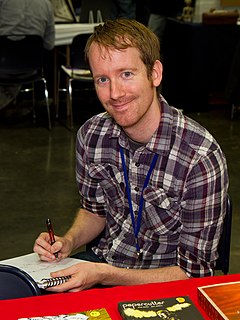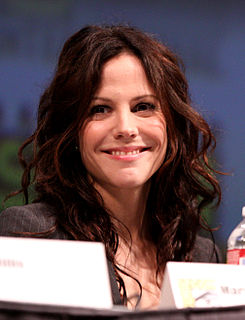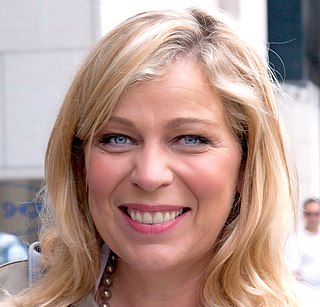A Quote by Ann Voskamp
Really good writing, from my perspective, runs a lot like a visual on the screen. You need to create that kind of detail and have credibility with the reader, so the reader knows that you were really there, that you really experienced it, that you know the details. That comes out of seeing.
Related Quotes
When you draw in a tight, controlled style, you open yourself up to - in my case, my own - criticism that things aren't quite right. If room is drawn so carefully, when a detail is wrong or missing, it's wrong or missing. The reader's imagination doesn't add the detail in because there are already so many other details. The reader is restricted to seeing the elements that are right there in front of him/her.
On a more technical level, a story takes a lot of words. And to generate words and phrases and images and so on, that will compel the reader to continue reading - that stand a chance of really grabbing a reader - the writer has to work out of a place of, let's say, familiarity and affection. The matrix of the story has to be made out of stuff the writer really knows about and likes. The writer can't be stretching and (purely) inventing all the time. Well, I can't, anyway.
I know "accessibility" is a term that's kind of thrown around wantonly today, especially with talking about visual media. But I think that the strength of comics [is how they] really allow you to transcend those last barriers between a reader absorbing the information of an experience, and a reader being able to project themselves into the [experience of the] people about whom they're reading.
I really like the director [for Weeds]. I don't know if you've spoken to him yet but he's really, really intelligent. He was just really kind when I met him and nice and really told me why I should play the part...and kind of really didn't argue with him. He's just really, really smart and assembled these really great people. I felt like he really knows how to enlist his intelligence to get you - I don't know - he's really hard to argue with I find.
I haven't done it by myself at all. I've been surrounded by a really, really good crew of all ages. I think it's important to have a good age range in the crew so that some of us have experienced that period, or something close to that. But the script, of course, is really inspiring and you just have to trust that. Sometimes on film a glass can be as big as a car, so if the details are right, then they take up as much space on screen as the streets that we didn't have a chance to show as London really has changed since then.
You've got to be a good reader. So whatever genre that you're interested in, read a lot of books about it and it's better than any kind of writing class you'll ever take. You will absorb techniques and then in a lot of cases you can just start writing using the style of the book or the author that you admire and then your own style will emerge out of that. Be a diligent reader and then try to write seriously, professionally and approach everything in writing in a professional way.
The devil's in the details. The way I view my job is to bring the reader into a world they otherwise could not enter and let them see it through the character's eyes. And you can only do that with detail. The details make the characters distinct from one another. If you can give them those little grace notes, those little touches, that's what makes the reader relate.
I feel really strongly about not wanting to overly guide the reader about what he or she should think. I really trust the reader to know for themselves and not to need too much. You have your own imagination, your own experiences, your own feelings, and a novel wants ultimately to ask questions. It doesn't assert anything, or shouldn't, I think.
That is as true for fiction or non-fiction. The writer has to really know their subject. It is really important to remember that the readers are a lot smarter than the writer. Also, good writing has to do with rewriting. You will never get it right the first time. So you rewrite and rewrite again until you get it right. Until you, and the reader, will be able to visualize what you're writing about.
I barely read. I'm not a good reader at all. Rather than reading, I used to sit in front of the TV and watch black-and-white cowboy movies. I'm a painfully slow reader. It's really bad as an actor, because you have to read a lot of scripts. It takes me like an average of three hours to read a script, which is pretty poor.



































